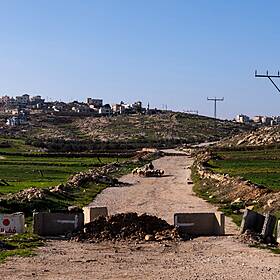
Israel's Existential Threat From Within
18 September 2024 - 1 hour 9 mins explicitWarning: this episode contains descriptions of violence.
In the last year, the world’s eyes have been on the war in Gaza, which still has no end in sight. But there is a conflict in another Palestinian territory that has gotten far less attention, where life has become increasingly untenable: the West Bank.
Ronen Bergman, who has been covering the conflict, explains why things are likely to get worse, and the long history of extremist political forces inside Israel that he says are leading the country to an existential crisis.
Guest: Ronen Bergman, a staff writer for The New York Times Magazine.
Background reading:
How extremist settlers took over Israel.What is the West Bank and who c...

The Sunday Read: ‘The Strange, Post-Partisan Popularity of the Unabomber’
Online, there is a name for the experience of finding sympathy with Ted Kaczynski, the Unabomber: Tedpilling. To be Tedpilled means to read Paragraph 1 of Kaczynski’s manifesto, its assertion that the mad dash of technological advancement since the Industrial Revolution has “made life unfulfilling,” “led to widespread psychological suffering” and “inflicted severe damage on the natural world,” and think, Well, sure. Since Kaczynski’s death by suicide in a federal prison in North Carolina nearly two years ago, the taboo surrounding the figure has been weakening. This is especially true on the right, where pessimism and paranoia about technology — largely the province of the left not long ago — have spread on the heels of the coronavirus pandemic and efforts to police speech on social media platforms.
19 mins
27 April Finished

'The Interview': Isabel Allende Understands How Fear Changes a Society
The beloved author left Chile at a time of great turmoil and has longed for the nation of her youth ever since.
40 mins
26 April Finished

Children’s Books Go Before the Supreme Court
On Tuesday, the Supreme Court heard a case that could hand parents with religious objections a lot more control over what their kids learn in the classroom. Adam Liptak, who covers the Supreme Court, explains how a case about children’s picture books with titles like “Pride Puppy” and “Uncle Bobby’s Wedding” has broad implications for schools across the country.
34 mins
25 April Finished

What an Iowa Farmer Fears About the Trade War
In the increasingly bitter trade war between the United States and China, perhaps nobody has more at stake than America’s soybean farmers, whose crop has become the country’s single biggest export to China. Michael Barbaro speaks to an Iowa farmer who helped build that $13 billion market, and asks her what President Trump’s sky-high tariffs mean for her and for tens of thousands of other American farmers.
29 mins
24 April Finished

Trump Says They’re Foreign Gang Members. Are They?
In recent weeks, the Trump administration has deported hundreds of Venezuelan migrants by quickly labeling them as gang members and foreign enemies, and boarding them on planes to El Salvador. It’s sidestepping their rights to a court hearing where anyone might be able to scrutinize the claims against them. As a result, very little has been known about who these men are, or how they were targeted by immigration officials. Until now. Julie Turkewitz, the Andes bureau chief for The New York Times, explains who was actually on those planes, and discusses the secretive process that led to their deportations.
29 mins
23 April Finished

How Pope Francis Changed the Catholic Church
Church bells rang out across the world on Monday to mark the death of Pope Francis at the age of 88. Jason Horowitz, the Rome bureau chief at The New York Times, discusses the pope’s push to change the church, his bitter clashes with traditionalists, and what his papacy meant to the world’s 1.4 billion Catholics.
39 mins
22 April Finished





















